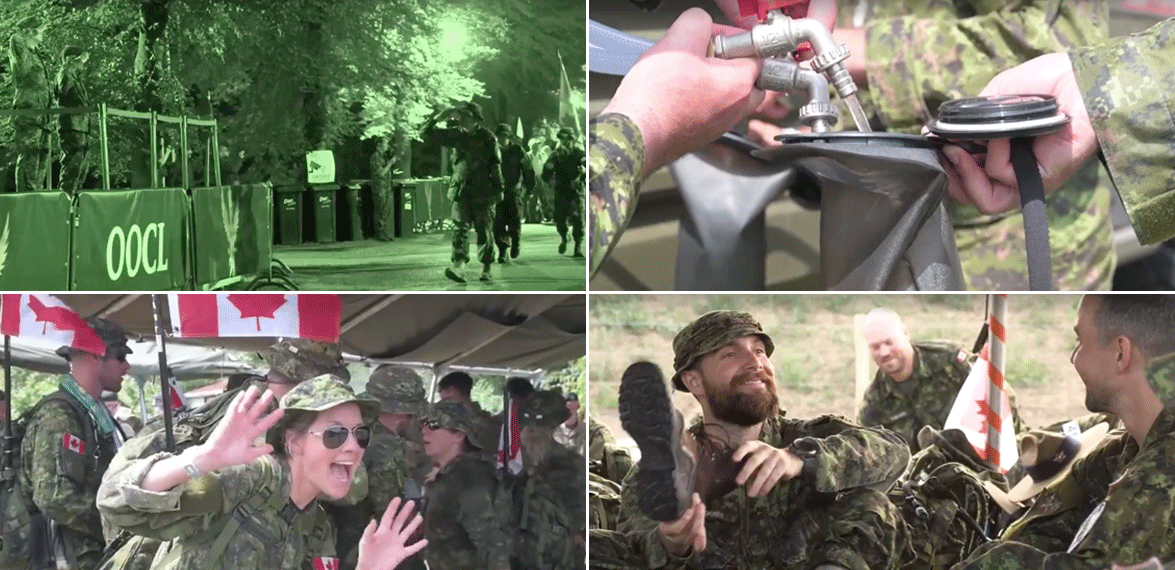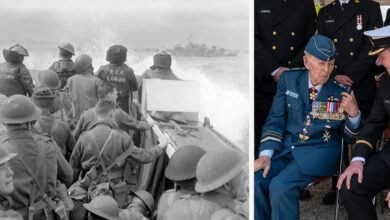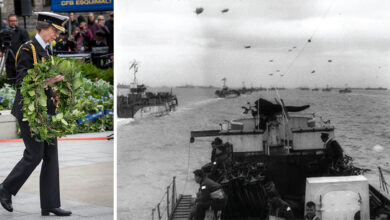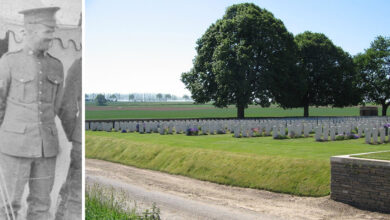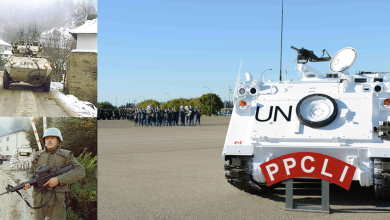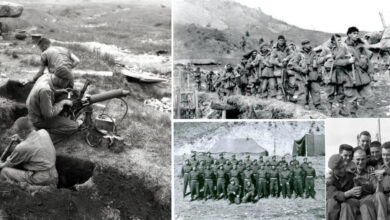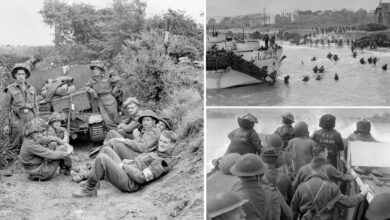History
103rd annual Four Days Marches Nijmegen wrapped up in the Netherlands
Four Days Marches Nijmegen
Earlier today the 103rd annual Four Days Marches Nijmegen concluded with a 5 km victory parade that was attended by thousands of spectators who cheered in commemoration of the Canadian Soldiers that liberate the Netherlands during the Second World War.
The Marches, an international four-day march takes place in Nijmegen, the Netherlands, where participants march for 40 km a day, for four days.
Over 215 Canadian Armed Forces (CAF) members comprised of 14 teams from across Canada participated. Each team consisted of 11 to 12 members, along with special guests: Soldier On members and support staff.
Led by Lt. Colonel Eric Quirion, Commander Joint Task Force Nijmegen, the Canadian continent included members from all ranks, trades and environments, Regular and Reserve Force, women and men.

“I am immensely proud today of each and every one of the members of this year’s contingent. Over the past few days, I have had the chance to see first-hand how dedicated, strong, perseverant and resilient these women and men are.
“They have overcome every physical and mental challenge associated with the marches and have not only demonstrated immense professionalism, but have also proudly represented Canada,” stated Lieutenant-Colonel Éric Quirion, in a press release.
“It’s been a deeply moving experience this week to see Canadians march again through the cities and towns of the Netherlands, and to watch them stop at Canadian war cemeteries to honour the sacrifice of our fallen. I am proud to be here to see this dedicated contingent march across the finish line. Congratulations!” noted Sabine Nölke, Ambassador of Canada to the Kingdom of the Netherlands.
The Nijmegen Marches began as a way for the Dutch Infantry to increase their long-distance marching and weight carrying abilities.
However, it evolved into an international event that draws nearly 50,000 military and civilian participants from 84 countries to challenge their physical and mental endurance.
Ninety-three per cent of the CAF contingent were first-time marchers, with 23 per cent of participants being women, which is the highest contingency of women to participate in history.

“I am thrilled to see the Canadian Armed Forces contingent walk down the streets of Nijmegen today. The Canada-Netherlands relationship is like no other, rooted in the liberation of the country by the Canadian Forces in World War 2.
“It’s been a deeply moving experience this week to see Canadians march again through the cities and towns of the Netherlands, and to watch them stop at Canadian war cemeteries to honour the sacrifice of our fallen. I am proud to be here to see this dedicated contingent march across the finish line. Congratulations!” noted Sabine Nölke, Ambassador of Canada to the Kingdom of the Netherlands.
Remembering the Fallen
During the Second World War, from 1944-45, over 7,600 Canadians died during the campaign to liberate the Netherlands. While in the Netherlands for the Nijmegen Marches, the Canadian Contingent also commemorated Canada’s Military legacy in Europe.
Events included both the 75th anniversary of the Battle of the Scheldt and the annual Vimy Memorial Commemoration on July 12 at the Canadian National Vimy Memorial in Vimy, France.
The CAF contingent also held a memorial service in the presence of many Canadian and foreign dignitaries, at the Groesbeek Canadian War Cemetery. Buried in this Cemetery are 2,338 Canadian soldiers who participated in the campaign to liberate the Netherlands during the Second World War.
The CAF contingent also visited the Sloedam Memorial and the Liberation Museum in Zeeland.
While in the Netherlands the Canadian contingent held a Remembrance Ceremony at Bergen-Op-Zoom Canadian War Cemetery, in Bergen Op Zoom where 968 Canadian soldiers lost their lives during the Battle of the Scheldt. The fighting took place north of Antwerp.
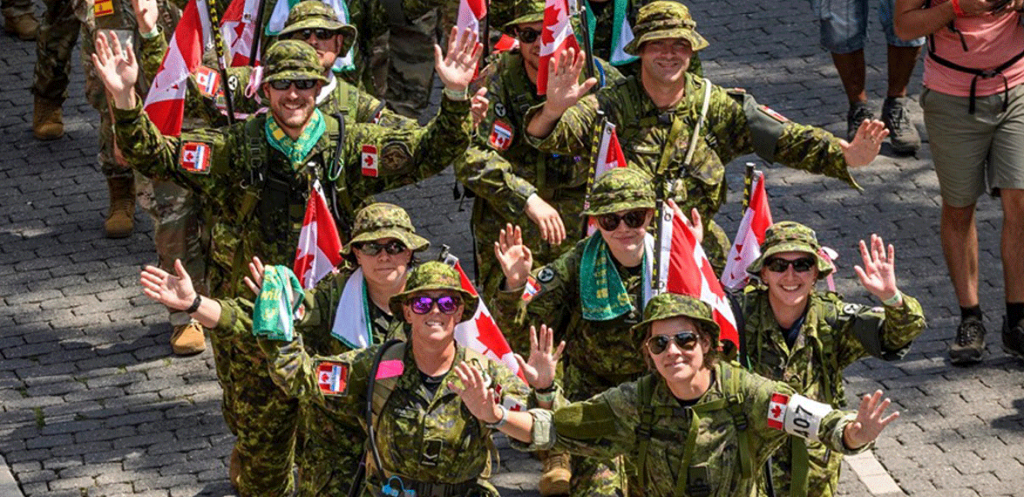
“It is with great pride that the Canadian Armed Forces participates in the International Four Days Marches Nijmegen on an annual basis. This international event enables us to reaffirm our continued support to peace and security in Europe as well as to celebrate our proud Canadian military history. It is also an opportunity to remember and honour the great contributions and sacrifices of the Canadians who served with bravery during the First and Second World War,” said Vice-Admiral Haydn Edmundson, acting commander Military Personnel Command.
Canada’s Continued Contribution
Currently, the Canadian Armed Forces have 500 members permanently stationed across 19 NATO nations in Europe. It also has approximately 2,000 members serving in Europe at any given time as part of its sea, land and air contributions to the security and stability of the region.


